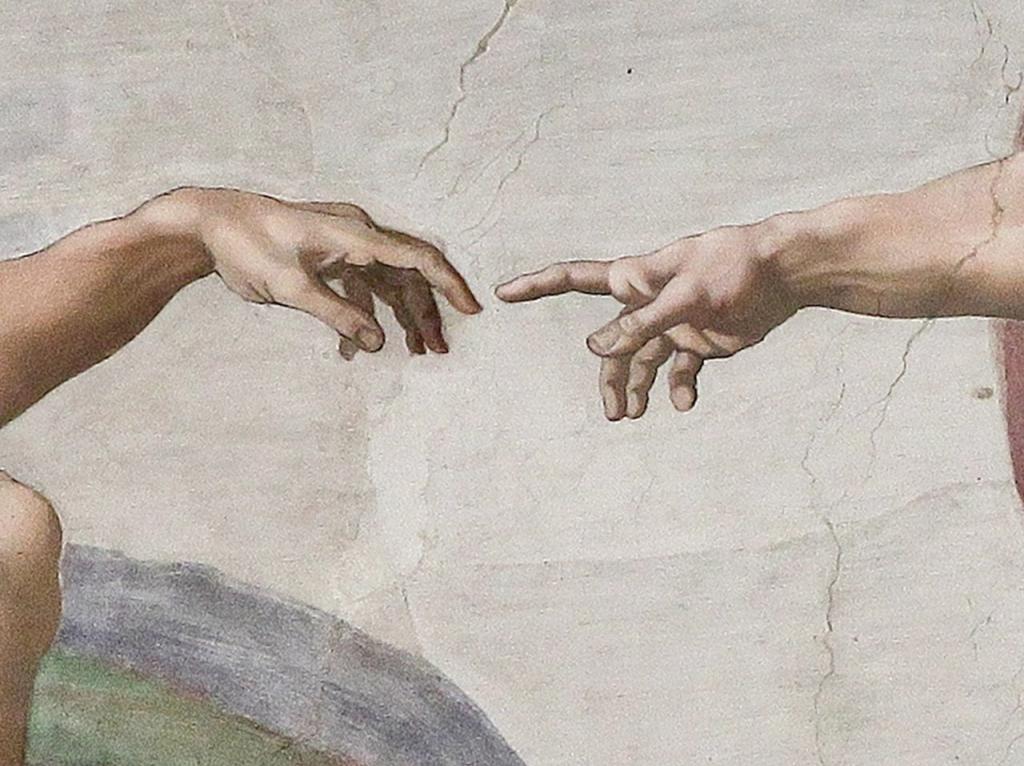
This article looks at how core Christian beliefs perpetuate unhealth and codependency with the Divine through unconscious repetition compulsion, intermittent reinforcement, and love-bombing. The ensuing cycle traps people in a perpetual toxic loop of intense feelings of intimacy followed by long periods of neglect. I also offer action steps to reclaim our agency, and rediscover our dreams and desires.
NOTE: If this article resonates with you, I offer 1:1 or group shadow work sessions for you to dive deeper. Email me or read below for details.
The Problem With “God’s Will”
Working with individuals from various religious communities, I noticed a common focus and hyperfixation on questions like “What does God think about me?” “What does God want me to do with my life?” “How is God leading me?” And the classic, “What is God’s will for my life?” These questions are inherently problematic because they locate a person’s identity, self-worth, and purpose outside of their own embodied life. They assume purpose, identity, and agency to be non-native to them, and thus found in another.
Even after moving beyond these questions, some may still carry a level of existential fear or suspicion that the “universe” is somehow displeased or impatient with them. After deconstructing their image of God, their ability to think, act, or make decisions for themselves remains underdeveloped. This leaves them unable to trust their desires and wants, and exist in a perpetual oscillating state of decision paralysis with their feet firmly planted in the ground of uncertainty. This is truly a miserable place to live, but many never imagine another way.
Codependency Defined
Before I go further, allow me to define codependency:
“Codependency is a focus on other people’s problems, feelings, needs, and wants while minimizing or ignoring your own. Codependents see other people as more important than themselves and prioritize taking care of them in order to feel needed, loved, or worthwhile.” (Article: How to Conquer Codependency, by Sharon Martin, DSW, LCSW)
Put simply, a codependent person needs others to validate and approve them. As Dr. Martin writes, “[Codependents] rely on others for their identity and sense of worth.” Collective Christian values in one’s family of origin, education, and community establishes and perpetuates this dynamic. The common Christian understanding assumes God is all powerful, all knowing, and all worthy. Conversely, humans are fundamentally sinful, selfish, and unworthy. When a person gains their essential worth from another person, they are by definition, codependent with that person. But relying on God for our worth (2 Thessalonians 1:11), our salvation (John 3:16-18), our very breath (Acts 17:28), is applauded and revered as a sign of health, fidelity, and obedience.
Codependency and Christian Psychology
Below are a number of common signs of codependency. I added commentary on how I see each codependent sign evidenced in individuals’ relationship with the Divine and others.
A deep-seated need for approval from others. God’s approval is paramount, and directly tied to our worth. Worth is not intrinsic to you, but intrinsic to God, and thus extrinsically bestowed. Certainly, approval by God is a euphoric feeling. But a lack of approval leads to neglect and/or eternal punishment, which places us in a state of ambivalence and uncertainty as to where we stand. This naturally leads us to do things we don’t really want to do to gain approval, which is another codependent sign.
A tendency to apologize or take on blame in order to keep the peace: This one hits home. It’s not a stretch to say I spent my 20s apologizing to God. I apologized for masturbating, for feeling angry, for missing an “opportunity to witness” to a stranger. It took me years to construct boundaries with abusive people, because there was always something more I could do to bring about peace with them. In my case, and others, the need for Divine approval naturally extends to other people. “Peace at any price” was the gold standard, supported by verses such as Romans 12:18. My peace with God depended on my peace with others. My codependency with God required me to be codependent with everyone.
Avoiding Conflict. Taking on blame to keep peace is a conflict avoidant tactic. Speaking honestly and openly, even when done imperfectly, can build trust and deepen interdependence. But for the codependent, conflict threatens to upend the hierarchical power differential, and leave them feeling painfully vulnerable. Because God has so much power, conflict can be a terrifying action to even consider. Avoiding an all powerful God who loves you and has a green light to send you to hell if you don’t love him back is just good sense. But staying in that sort of relationship while avoiding necessary conflict is an absolute soul suck.
A habit of taking on more work than you can realistically handle, both to earn praise or lighten a loved one’s burden. The Christian mythos (guiding symbol and belief) begins with “Jesus died for my sins.” Many Christians affirm, Jesus paid my debt, so I own him my life. Of course, such sacrifice is always painted in a positive light. But the debt simply transfers to Jesus–or more accurately, to whatever image of Jesus the individual holds. For example, if our image of Jesus oscillates between love and distance, then we will oscillate between security and feelings of abandonment. From here we very easily move into a cycle of other codependent tendencies: 1) overwhelming fears of rejection or abandonment,2) a tendency to minimize or ignore desires and 3) guilt or anxiety when doing something for yourself.
Idealizing [others], often to the point of maintaining relationships that leave you unfulfilled. When we idealize another person, we ascribe to them exaggerated positive attributes and view them as exceptional, even perfect. Psychological projection plays a big role here. A codependent individual typically exists with a level of inner deflation, and compensates by investing (or projecting) their energy into an idealized “other.” In relation to God, we may say God is perfect and holy (inflated), and I am unworthy and a sinner (deflated).
Inwardly, the codependent person maintains a hidden inflation due to their association with the idealized other. They may also harbor shadow feelings of exceptionalism and grandiosity, while presenting the persona of “faithfulness” and “long suffering.” Overtime, resentment builds up and internal dissonance eventually has its day. The repressed longings and desire mixed with a simultaneous lack of fulfillment chemically react and self-destruct.
Repetition Compulsion
“Let us take it that we have the image of God […] in our own [soul], and then we need not run about looking for it.” – Marie-Louise von Franz
Commonly, codependent individuals are drawn to emotionally unavailable people. Psychologists call this fatal attraction repetition compulsion. As the term suggests, repetition compulsion is the compulsive reenactment of a traumatic event or relationship with the unconscious desire to heal and resolve it. If we grew up with an emotionally unavailable, narcissistic, or abusive parent, we may be compulsively drawn into present relationships with the desire to heal that original relationship. This is certainly true with our engagement with God.
Fact: Our relationship with God, is necessarily mediated by our image of God. We also project past experiences and relationships (images) onto present ones. This means that as our God image is developing, we unconsciously transfer our experience with our parents (the first god images) onto our divine God image. This realization is painful because it seems to call into question every meaningful experience of the Divine. It can feel as though it’s all an illusion, which is a necessary, though excruciating stage in this work. I’ve worked with countless people who’ve spent decades coming to this agonizing realization.
Here is an encouraging note–to even realize repetition compulsion in our relational dynamic with God is massively healing. It’s only from this disillusionment that we can grow into a more authentic connection with ourselves and the Divine.
Ok, you good? Let’s dive back in!
Intermittent Love-Bombing
Intermittent reinforcement is defined as: “[…] the delivery of a reward at irregular intervals, a method that has been determined to yield the greatest effort from the subject. The subject does not receive a reward each time they perform a desired behavior or according to any regular schedule but at seemingly random intervals.” Intermittent reinforcement is the psychological mechanism behind addictive gambling. Relational rewards are dispensed to us like coins from a slot machine–we exist in a constant cycle anticipation and relief, which is highly addictive.
Intermittent reinforcement is often used by emotionally unavailable people to keep a partner pining for connection, while stifling true intimacy, vulnerability, or interdependence. If our God image is emotionally unavailable, we are likely still able to point to times when God was faithful, intimately present, and deeply affectionate. But in the flow of everyday life, feelings of neglect and abandonment haunt us as we long for closeness again.
Love-bombing is a manipulative action (typically carried out by those with narcissistic disorders/tendencies) meant to control another person by showering them with overwhelming love and affection followed by physical distance and emotional neglect.
The Christian Codependency Script
I walk with many people whose relationship with God is punctuated by experiences of intense love-bombing. The feelings of euphoric connection, followed by long periods of absence and unavailability create a pleasure-seeking loop, based on the pursuit of dopamine (Read: The Molecule of More by Daniel Z. Lieberman MD). The difficulty in identifying this cycle is due to the fact that it seems essential to the Christian life.
Does this script sound familiar? God leads us into the wilderness/desert to grow us, to teach, and shape us in his image. Yes, life initiates us through various “desert seasons,” but when we’re stuck in repetition compulsion, we can’t distinguish true initiatory experiences from unconscious trauma reenactment. Instead of living into greater wholeness with each new season of life, repetition compulsion keeps us caught in an inner tug-of-war between intense affection and searing rejection, while gaslighting us into suspecting we’ve made the whole thing up.
Actions to Address Divine Codependency
Chart the Pattern
If you read this article and it illuminates the cycle you experience with your God image or your religious community, just take it in for a moment. Awareness is half the battle, and the more aware you become, the harder it is to keep moving through the cycle. How do you see concepts like codependency, repetition compulsion, intermittent reinforcement and love-bombing playing out in your psycho-spiritual/emotional life?
Trust Yourself & Set Clear Boundaries
Codependency keeps us from knowing or owning our own thoughts, feelings, instincts. Healing looks like building a passageway to experience these, perhaps for the first time. Our body holds a lot of wisdom, but listening to it can feel irrational and destabilizing to our nervous system. If you are currently in or been a part of a religious system that discourages trusting your body, getting out is/was your best first step. Fidelity to yourself is paramount. If your exit is/was messy, that’s ok. Learning to be on non-speaking terms with groups or people associated with abusive systems is a healing element in itself.
As for an emotionally unavailable narcissistic God image? Stop negotiating with it. Draw hard, at least clear, boundaries. I heard it said once, “You don’t have to draw boundaries with God.” But this assumes our God image is pure. If our God image displays emotional unavailability or codependent tendencies, hard boundaries are essential. In fact, it is from these hard boundaries that a more whole and whole-making God image can emerge.
Find Ways to Play & Prioritize Yourself
Codependency traps us from knowing our needs and wants. We sacrifice them for the sake of the other person or the relationship. A common Christian refrain is “Do everything for the Glory of God.” We are to live in total obedience to God, and focused on building his kingdom. Many of us, myself included, spent precious years fixated on this mission. When I turned 30 I didn’t know what I enjoyed doing with free time, or what hobbies brought me pleasure. Playing and enjoying life can feel wrong, and wasteful, but it is a primary step toward taking back your disowned self.
Find Trustworthy People or Groups
This takes a lot of energy, risk, and can be painstaking. If you are in a codependent religious system, it’s likely partially upheld by your social network. Leaving or drawing boundaries will draw a lot of resistance from those still trapped in the illusion. It’s essential that you actively look for other trustworthy people, be they support groups, or acquaintances/friends you currently know.
Want to Engage Further?
- 1:1 Shadow Work: Want to do some integrative work with your God image or codependent tendencies in your spiritual life? Dr. Simmons offers 1 on 1 shadow work facilitation for this work. The cost is $60/1 hour session. You can email him directly at innerworkcommunity@gmail.com for more information.
- Upcoming Course: 5 Week Course: Shadow Work for Emotions & Relationships – Wednesdays, April 10th through May 8th | 9am-11am PST | $200

















